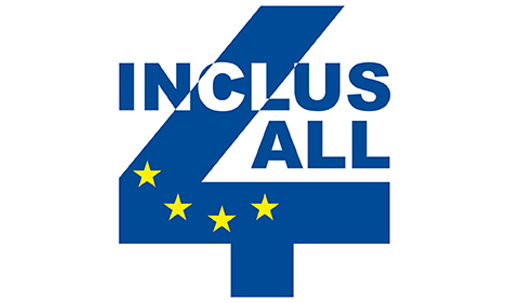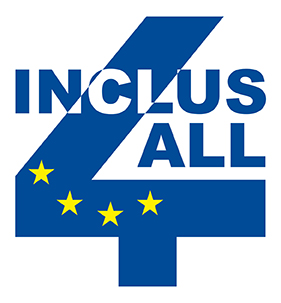2nd Transnational Meetingbr>Erasmus + Project KA201 "Inclus 4 All"
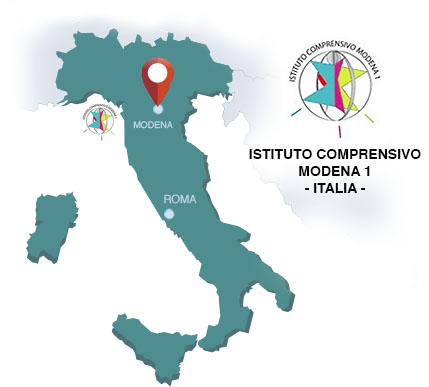
Place:
- Modena, Italy
Dates:
- October 29, 30 and 31, 2019
Host:
- Istituto Comprensivo 1, Modena
Meeting participants:
- ADE Team of Creena Pamplona
- Navarra – Education Inclusion Bureau
- Modena Comprehensive Institute 1
- Vilela Agrupamento Escolas
Modena - october 2019
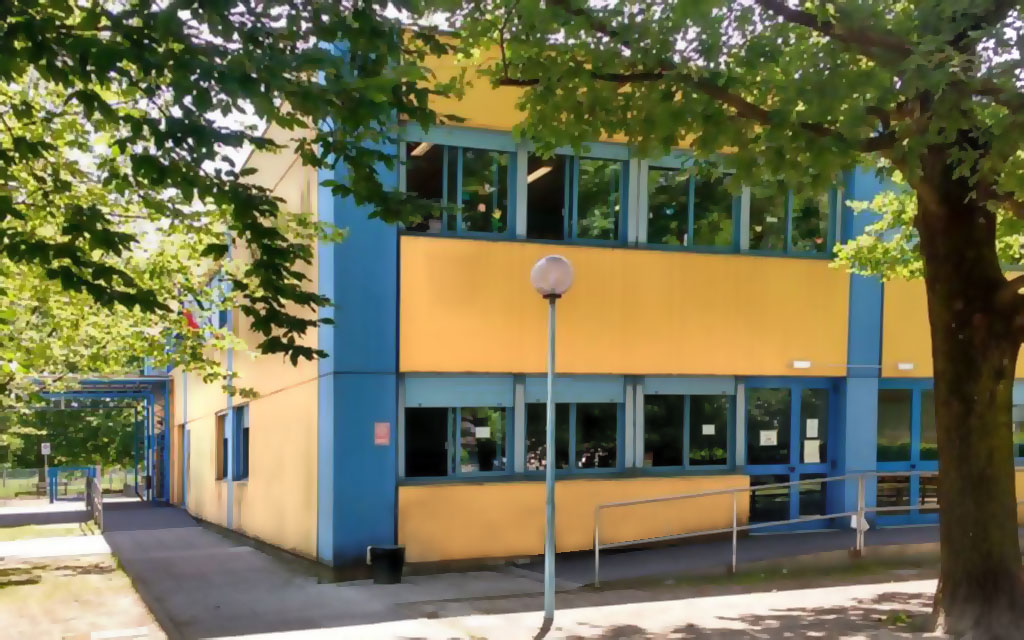
Monday October 28
The Navarra and Vilela teams arrive in Modena in the evening. At the train station we are welcomed by our hostesses who accompany us to the hotel to settle in and from there we go to a reunion dinner between all the people who make up the four partner teams. It is important to point out the good personal relationships that have been created between all the participating teams as a result of the first meeting in Pamplona (March 2019). It has contributed to this that meetings have been systematically held by videoconference to gradually adjust the work committed in the consortium.
Tuesday October 29
The work meeting begins with a visit to the primary and secondary schools belonging to the school group of the partner of Modena, located in the same city. There we were able to check in situ how to work inclusively with all students in the ordinary classroom:
When a girl or a boy needs extraordinary support, the expert figures to accompany and help participate in the classroom, in coordination with the tutor and the teaching staff. There is also an external classroom that serves as a “quiet” area if, at any time, a student with Autism Spectrum Disorder (ASD) requires specific attention.
The big difference with respect to the educational centers in Spain is that in Italy the students with Special Educational Needs are enrolled in the ordinary classroom and receive support and accompaniment in the external classroom only at specific times and always with the intention of remaining in the classroom most of the time with their peers in the ordinary classroom.
One of the main hallmarks of this school group is the Theater activity as a backbone of the curriculum.
We visited the facilities and they explained to us how, through the Glotodrama, the coordination between the language and drama teachers facilitates the process of teaching language learning.
This group has a large number of students of foreign migrant origin who, thanks to this method, acquire the Italian language in a competent way along with another language. It is also interrelated with other curricular areas through the content of the plays that are worked on during the process of preparing it, and that ends with a performance. In this staging, various educational competencies and curricular areas interact.
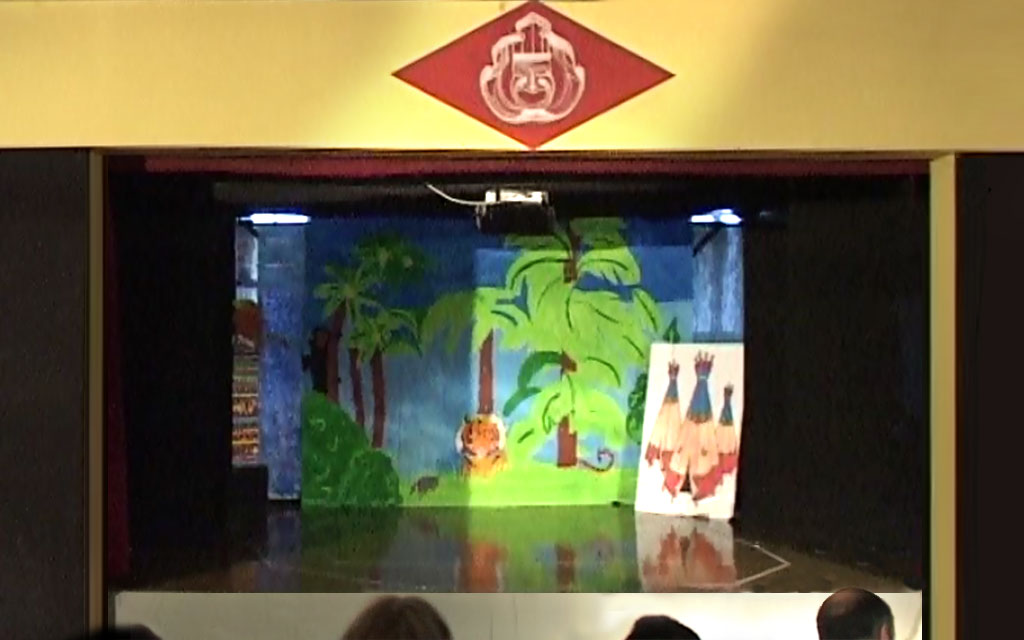
Preparation of a theater session within the "Glotodrama" project
Later, we went to a municipal reception at the European Projects Coordination Center that exists in the central square of Modena. There we were able to learn about the municipal project to promote European identity from the town hall in collaboration with the Department of Education. This center supports any European initiative and also Erasmus + projects.
The reception was attended by:
- The director of the Istituto Comprensivo IC1 Modena School Group: Concetta Ponticelli
- Public Education Advisor: Grazia Baracchi
- Heads of European Services in Modena: Elisabetta Olivastri.
- Responsible for the Inclusion of public education in the Emilia Romagna Region: Cristina Monzani
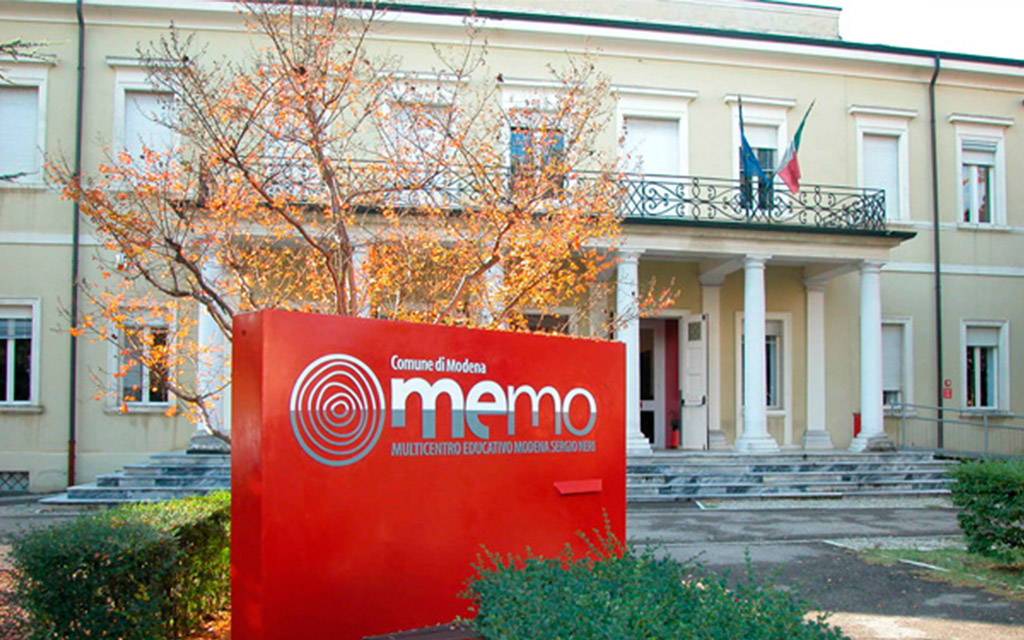
Educational Multicenter of Modena Sergio Neri, MEMO, Modena
In the afternoon, we went to the Multicentro Educativo de Módena, a large educational documentation and training center.
This center assumes training above all as a permanent accompaniment to the teaching profession and the constant qualification of the school service. It also promotes meetings and training activities aimed especially at families, as a support for parenting and the qualification of the educational pact between school and family. We were able to visit the facilities and check the continuous traffic of teachers, families and teaching career students who attend the training courses, workshops and the library.
It also has a specific section on documentation of good educational practices that can be consulted by any interested person. The library is the heart of this center and a large number of training activities, pedagogical meetings and work groups are developed around it.
Wednesday October 30
Early in the morning, we traveled from Modena to Reggio Emilia to visit the Loris Malaguzzi International Center where our hosts had booked a guided tour and a working and discussion session.
We carry out the visit around the different workshops of the Center. In these workshops – light, digital, graphics, paper, clay – different languages are intertwined and we could also contemplate exhibitions arising from research projects carried out with nursery schools and other schools in the Municipality of Reggio Emilia.
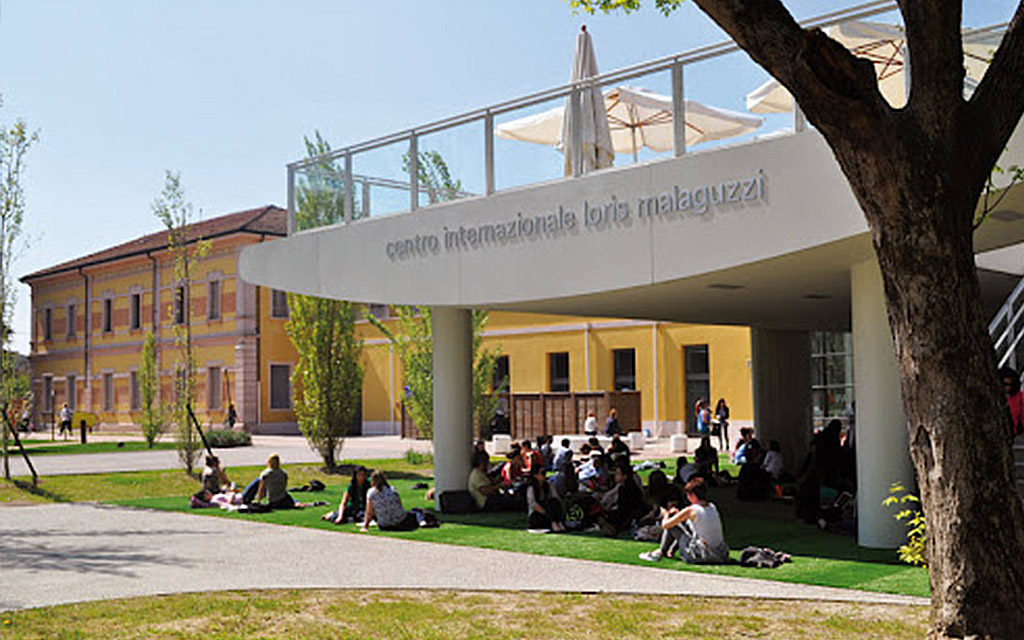
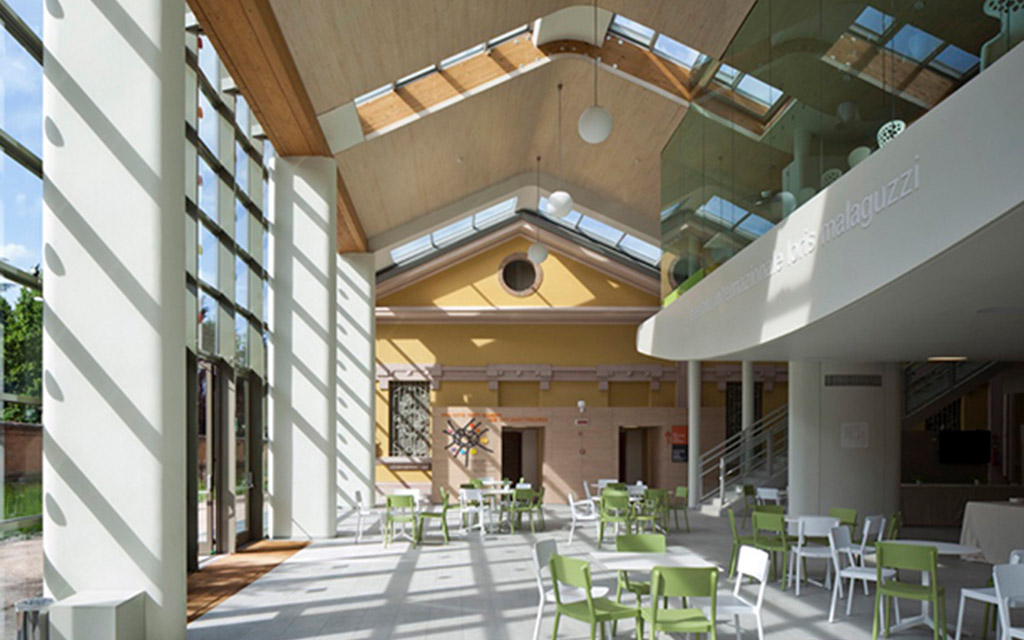
Loris Malaguzzi International Center, Reggio Emilia
The pedagogical philosophy of the movement began in 1945 when Loris Malaguzzi moved to set up and manage a small school in a rural setting with girls and boys from peasant families, who despite their few economic resources prioritized betting on the education of their daughters and sons.
The pedagogical-educational movement quickly spread to other villages in the area, setting up a network of schools in which each girl and boy are the center of attention, with proposals that encourage curiosity, respecting the personal rhythm of learning of each child. At the same time that they are continuously offered assumable challenges that motivate them to investigate the environment and the possibilities of interaction with it, the context is considered as another teacher in the teaching-learning process.
In the afternoon we made a guided tour of the workshops of the Loris Malaguzzi International Center, which allowed us to discover multiple proposals made and their development in classrooms in the Reggio Emilia region, as well as various didactic materials.
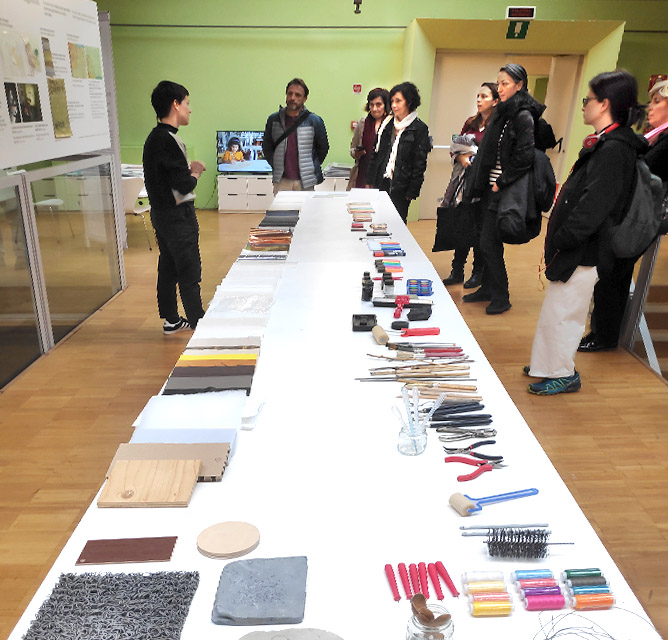
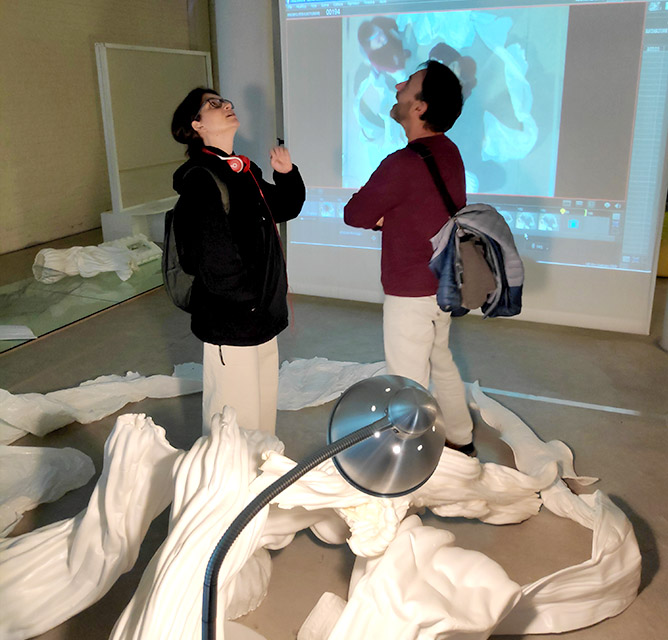
Visit to the workshops of the Loris Malaguzzi International Center
Thursday October 31
The working day focuses on:
- Presentation of the project’s multilingual website.
- Discuss and analyze the results of the Canvi rubric that have been tested in the consortium centers.
- Reflect on some sections of the project by the partners.
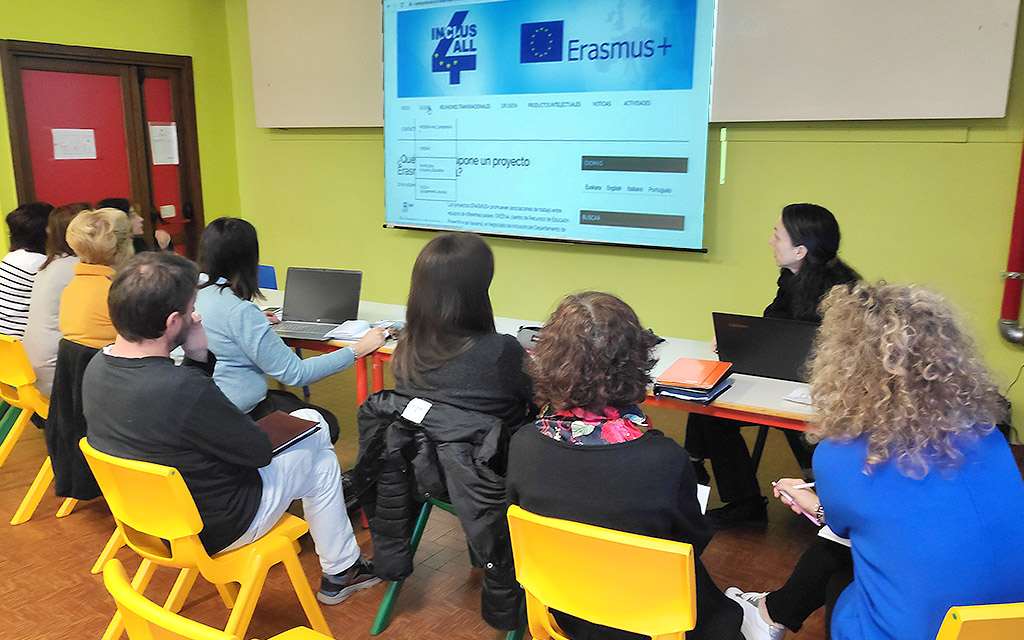
Work meeting of partner teams in Modena
It is decided to hold an unbudgeted meeting in Barcelona, which will be assumed by each partner center. We value it as very important to be able to visit centers of the Escola Nova 21 Network that are carrying out global methodological transformations. We are very interested in verifying whether these changes are aligned with the universal concept of inclusion outlined by UNESCO.
In our intellectual products, it is essential that inclusion be understood as personalized attention for all students, whether or not they present difficulties associated with sensory or cognitive functional diversity.
We must check if the centers that are currently considered more innovative and as benchmarks, have detected barriers to access to learning and if this has been the case, what measures have they adopted to overcome them.
We are concerned that methodological changes, if they are not accompanied by a detection and elimination of barriers to access to learning, may mask these barriers under an aesthetic appearance and attractive materials. The goal is for our intellectual products to be aligned with Universal Learning Design (DUA) guidelines.
At noon, the 2nd Transnational Meeting concluded. All teams are very satisfied with the work done and with the progress of the project.
The following meetings will be through videoconference until we physically meet again in Barcelona in November 2020.
All the partners of the Erasmus + Program “Inclus 4 all” will continue working on our project and we will meet again in Vilela, Portugal in January 2020.
ERASMUS+ KA201
- CREENA - Calle Tajonar 14, 31006 Pamplona, Navarra
- +34 848 43 12 30
- mlopezgi@educacion.navarra.es
